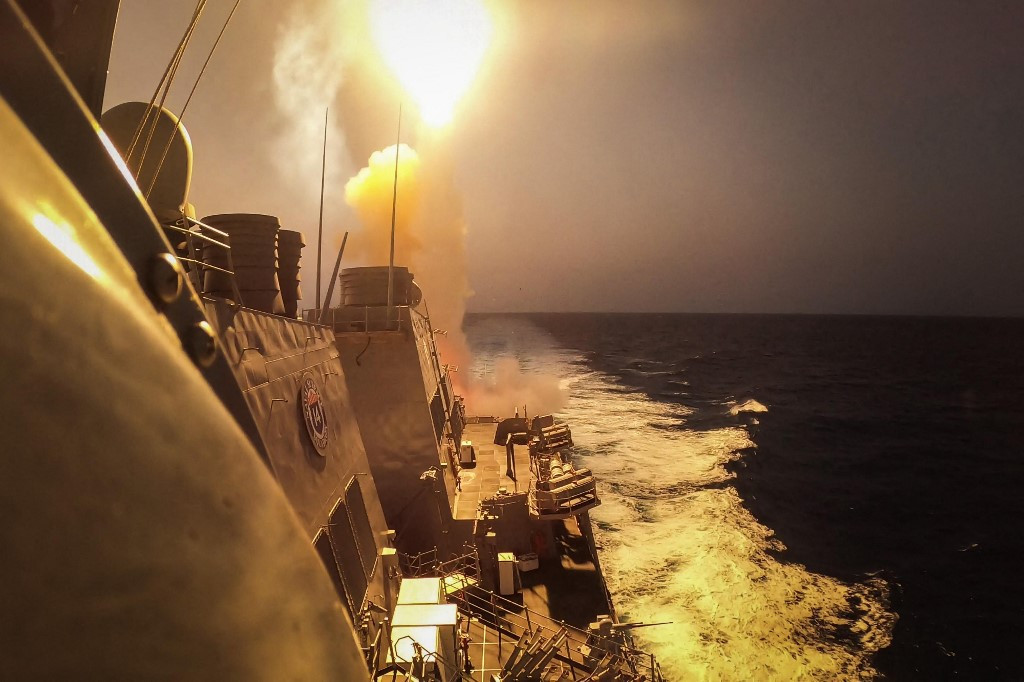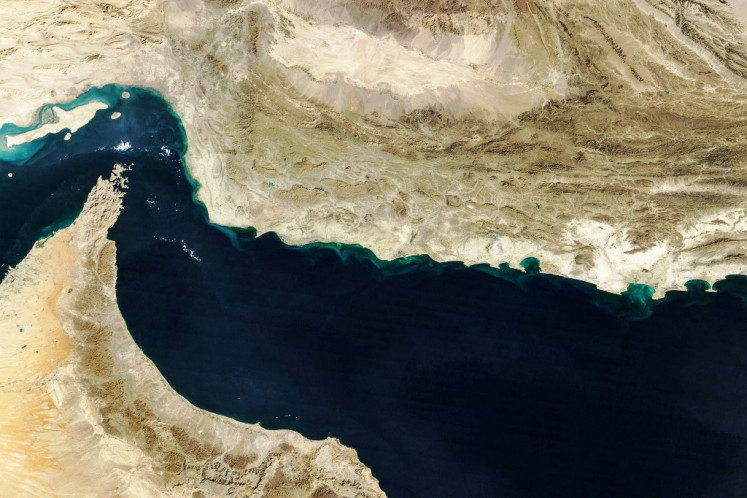Popular Reads
Top Results
Can't find what you're looking for?
View all search resultsPopular Reads
Top Results
Can't find what you're looking for?
View all search resultsDon’t expand Middle East conflict
It is getting harder to take Washington’s Middle East policy seriously when it has been arming, funding and assisting Israel in the Gaza war.
Change text size
Gift Premium Articles
to Anyone
W
hat started in October last year as a war between Israel and Hamas in the Gaza Strip has not only escalated but it has also expanded, dragging other countries in and outside of the Middle East into direct conflict. In the current geopolitical environment, there is no guarantee that the buck will stop there.
Both World War I and World War II had their origins in regional conflicts before they widened. Unless we take heed of the lessons from these two big wars, we are looking at World War III. This time pitting countries with nuclear weapons. It will be nothing short of horrific.
Last week’s air strikes by the United States against targets inside Syria and Iraq may have been prompted by the drone attacks from Iraq-backed fighters that killed three US service members and wounded dozens, but these actions amount to violations of the sovereignty rights of these two countries. Going by the rhetoric in Washington, Iran could be the next target as it has been blamed for providing support to the forces that are fighting against Israel and its Western supporters.
Earlier, the US and its allies launched strikes in Yemen against Houthi rebels in retaliation for their attacks against Israeli and Western ships sailing through the Red Sea. Lebanon is being dragged into the war with Israel also launching air strikes against Hezbollah military forces.
Despite claims that these were targeted attacks, there were civilian casualties. We can no longer dismiss these civilian casualties as “collateral damage”, certainly not when 28,000 people in Gaza, including many women and children, have been killed in Israel’s operation launched in retaliation for the Oct. 7, 2023, attacks by Hamas rebels that triggered this conflict in the first place.
Violence begets violence. Houthi rebels, Hezbollah and the Iraqi fighters in Syria are about the only forces around the world that have taken up arms to try to stop the genocide in Gaza.
Most other countries are still relying on diplomacy, either through the United Nations Security Council, the UN General Assembly or through bilateral and multilateral negotiations.
Major capital cities around the world, including London and Washington and even Tel Aviv, have seen massive protests calling on their governments to put a stop to the Israeli killings of innocent Palestinians.
But with the number of casualties in Gaza, and in the Israeli-occupied West Bank, approaching 30,000, there are limits to the world’s patience. Israel has even disregarded the International Court of Justice’s ruling last month telling it to prevent genocide.
The US, the chief supporter of the Jewish state, clearly is not playing its part when it could.
Last week’s shuttle diplomacy by US Secretary of State Anthony Blinken to the Middle East was doomed to fail unless Washington used its power to tell Israel to end the killings. It is getting harder to take Washington’s Middle East policy seriously when it has been arming, funding and assisting Israel in the Gaza war, and when it is leading other nations to stop funding the UN Relief and World Agency (UNWRA) in Palestine.
That the US has become a target of reprisals by the likes of Houthis and Iraqi fighters in Syrian borders comes as no surprise. The US retaliatory airstrikes, in violation of international laws, however, are only making things worse. They come across more as a desperate attempt at a show of force from a country that no longer has the unequivocal power it may have enjoyed once.
The war in the Middle East, at least for now, does not bring in other big powers like Russia and China, but it is bound to have some impacts in other conflicts where they do. Cases in point are the war in Ukraine involving Russia, and the tension in the Taiwan Strait involving China. US interests in other parts of the world, including here in the Indo-Pacific region, become vulnerable.
United Kingdom Defense Secretary Grant Shapps last month warned about imminent wars involving China, Russia, North Korea and Iran and even suggested that we are moving from a “post-war to pre-war world”.
The idea of World War III is not that far-fetched anymore.











